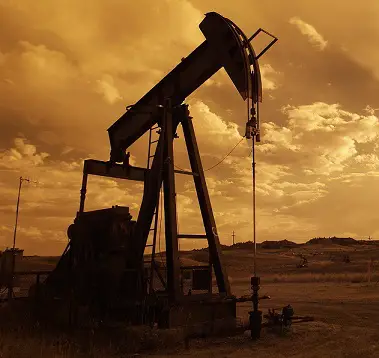As President Joe Biden wrapped up his visit to the Middle East, Saudi leaders insisted they had formed no agreement with him regarding increased oil production. They reiterated that the OPEC+ coalition would use market logic to determine oil policy decisions, and the amount of oil produced and delivered to market.
Biden has said following his meeting that he felt the Saudis felt his “urgency” to increase oil supplies, and that following his meeting he expected “further steps in the coming weeks,” to address that need.
The Saudis meanwhile insisted that there was no such agreement between the leaders, and that what would determine if more oil was pumped was solely the internal negotiations of the OPEC+ cartel, which will hold its next meeting to determine the Cartel’s oil policy on August 3rd.
In a statement, Saudi Foreign Minister Prince Faisal bin Farhan said, “We listen to our partners and friends from all over the world especially consumer countries. But at the end of the day, OPEC+ follows the market situation and will supply energy as needed.”
The OPEC+ coalition of oil producers includes as a member Russia, whom the West is attempting to punish through restrictions on its oil exports. However the Saudis made it clear, their sole allegiance with respect to oil production would be with the alliance.
Biden had been hopeful he could negotiate an increase in crude production from the Kingdom during his visit, to help ease the energy crisis that has been created in the west by the export restrictions placed upon Russia following its invasion of Ukraine. In the United States, high energy prices are driving inflation that is threatening to send the economy into a recession.
On Friday, Biden said, “I’m doing all I can to increase the supply for the United States of America, which I expect to happen. The Saudis share that urgency. And based on our discussions today, I expect we’ll see further steps in the coming weeks.”
However the Saudis pushed back on the idea any sort of consensus had been reached. Adel Al-Jubeir, minister of state for foreign affairs, said, “It’s not about an agreement; it’s about the kingdom’s long-standing policy of working to ensure that there’s adequate supply of crude oil on the markets and we follow the supply and demand situation very carefully. If there’s a potential shortage then we work on increasing crude oil production through and with our OPEC partners and OPEC+ partners.”
OPEC+ had already issued a decision to increase production quotas for member nations in June. However analysts think that with oil prices currently dropping, it is possible the Cartel will change course and perhaps even tighten supply come August 3rd.
Even if there were increases, they would be expected to be modest, as the cartel is seeking to maintain its spare production capacity, for use in case of emergency supply disruptions. Currently analysts with the International Energy Agency say the Cartel’s buffer capacity has dwindled to to just over 2 million barrels per day, which is seen as a razor thin margin, equal to just one sixth of the production of Saudi Arabia, alone.
Even so, under the existing OPEC+ agreement, Saudi production will reach 11 million barrels per day in the coming month. It its history the Kingdom has only rarely maintained that level of production output. Presently it is doing so through aggressive import of Russian crude for all of its internal energy requirements, to free up almost the entirely of the Kingdom’s internal production for export, to help it reach its export quotas.
Given its maximum sustainable production capacity of about 12 million barrels per day according to state-run giant Saudi Aramco, any additional production by the Kingdom would become a strain on its mechanism of production, and would most likely not be sustainable in the long term.

